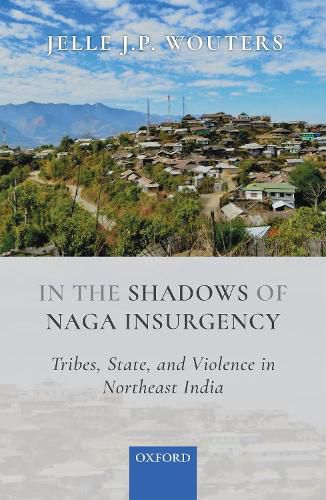Readings Newsletter
Become a Readings Member to make your shopping experience even easier.
Sign in or sign up for free!
You’re not far away from qualifying for FREE standard shipping within Australia
You’ve qualified for FREE standard shipping within Australia
The cart is loading…






In the Shadows of Naga Insurgency is a fine-grained critique of the Naga struggle for political redemption, the state’s response to it, and the social corollaries and carry-overs of protracted political conflict on everyday life. Offering an ethnographic underview, Jelle Wouters illustrates an ‘insurgency complex’ that reveals how embodied experiences of resistance and state aggression, violence and volatility, and struggle and suffering link together to shape social norms, animate local agitations, and complicate inter-personal and inter-tribal relations in expected and unexpected ways. The book locates the historical experiences and agency of the Naga people and relates these to ordinary villagers’ perceptions, actions, and moral reasoning vis-a-vis both the Naga Movement and the state and its lucrative resources. It thus presses us to rethink our views on tribalism, conflict and ceasefire, development, corruption, and democratic politics.
$9.00 standard shipping within Australia
FREE standard shipping within Australia for orders over $100.00
Express & International shipping calculated at checkout
Stock availability can be subject to change without notice. We recommend calling the shop or contacting our online team to check availability of low stock items. Please see our Shopping Online page for more details.
In the Shadows of Naga Insurgency is a fine-grained critique of the Naga struggle for political redemption, the state’s response to it, and the social corollaries and carry-overs of protracted political conflict on everyday life. Offering an ethnographic underview, Jelle Wouters illustrates an ‘insurgency complex’ that reveals how embodied experiences of resistance and state aggression, violence and volatility, and struggle and suffering link together to shape social norms, animate local agitations, and complicate inter-personal and inter-tribal relations in expected and unexpected ways. The book locates the historical experiences and agency of the Naga people and relates these to ordinary villagers’ perceptions, actions, and moral reasoning vis-a-vis both the Naga Movement and the state and its lucrative resources. It thus presses us to rethink our views on tribalism, conflict and ceasefire, development, corruption, and democratic politics.